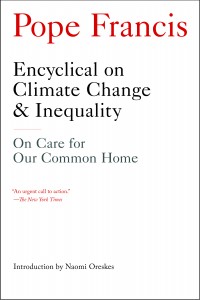September 23, 2015
Pope Francis comes to America
by Mark Krotov & Liam O'Brien
Yesterday afternoon, Pope Francis touched down at Andrews Air Force Base, in Maryland, where he was greeted by President Obama, Vice President Joe Biden, and their families.
Pope Francis is here! President Obama greet his Holiness as he lands on U.S. soil http://t.co/aaAiJ7sWTL #PopeinDC pic.twitter.com/5IQgJ3vsJw
— People magazine (@people) September 22, 2015
The “People’s Pope,” who has provoked an extraordinary amount of attention and celebration since his ascendance to the Papacy in 2013, has spoken to huge crowds around the world, but this is his first visit to the US, and so–at least for Americans–it is a truly momentous occasion.
The Pope will spend today and most of tomorrow in Washington, DC (he’ll become the first Pope to address a joint session of Congress), and he’ll arrive in New York City tomorrow evening. The pontiff’s New York schedule includes two religious services and an address to the United Nations, plus a motorcade trip through Central Park past onlookers who were lucky enough to have scored in the ticket lottery (or paid an astronomical sum on StubHub). After New York, he’ll head to Philadelphia, where he’ll lead masses and meet prisoners at the Curran-Fromhold Correctional Facility, the city’s largest jail.
 And while the logistics of the Pope’s itinerary have presented unique challenges to city officials, Pope Francis is expected to pose an even greater challenge to American politicians: he is likely to confront them on two of the most significant issues of our time–climate change and global economic inequality. Pope Francis explored both of these issues in his celebrated Encyclical on Climate Change and Inequality, which Melville House published in July. In the Encyclical, Pope Francis took a passionate stand against unfettered free-market capitalism and endorsed policies that curb greenhouse gas emissions. He is expected to speak in support of these policies during his addresses to the UN and Congress.
And while the logistics of the Pope’s itinerary have presented unique challenges to city officials, Pope Francis is expected to pose an even greater challenge to American politicians: he is likely to confront them on two of the most significant issues of our time–climate change and global economic inequality. Pope Francis explored both of these issues in his celebrated Encyclical on Climate Change and Inequality, which Melville House published in July. In the Encyclical, Pope Francis took a passionate stand against unfettered free-market capitalism and endorsed policies that curb greenhouse gas emissions. He is expected to speak in support of these policies during his addresses to the UN and Congress.
The Encyclical has put new pressure on Catholic presidential candidates to clarify their positions on climate change, and gained the Pope many new non-Catholic (and, indeed, non-religious) supporters with its powerful unifying message of social equality and humanity’s responsibility a stewards of the planet. (On Tuesday, Senate Democrats unveiled a new climate change bill and former Secretary of State and current Democratic presidential candidate Hillary Clinton’s announced her opposition to the Keystone XL Pipeline. It’s hard to see either of these events as unrelated to the Pope’s visit.)
In her introduction to the Encyclical, historian Naomi Oreskes writes:
The pope is not asking us to reject markets or technology. He is asking us to reject the (il)logic that insists that only markets can decide our future and that technology is politically and morally neutral. He is asking us to reject the creed of market fundamentalism, and to recognize that the system has levers. Individuals, institutions, and governments are all making choices, and we have the capacity to make different ones.
This message has never been more timely, and while it remains to be seen how Congress will respond, one thing is for sure: the Pope has arrived, and his message is going to be delivered loud and clear.